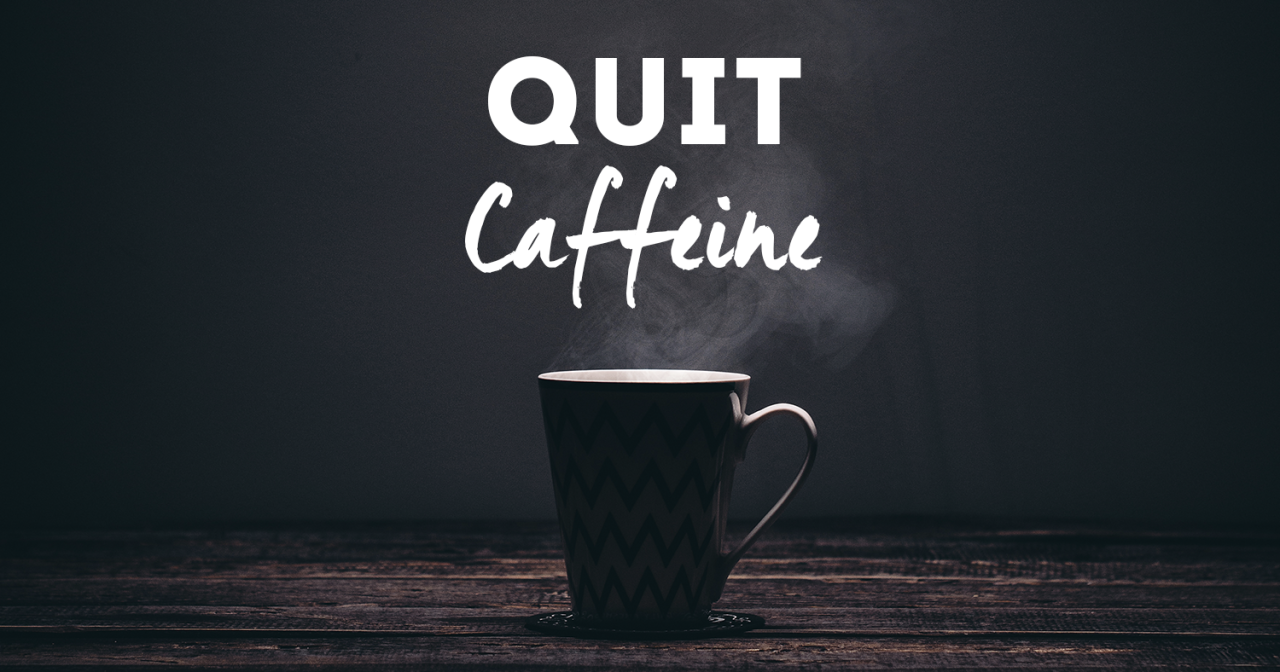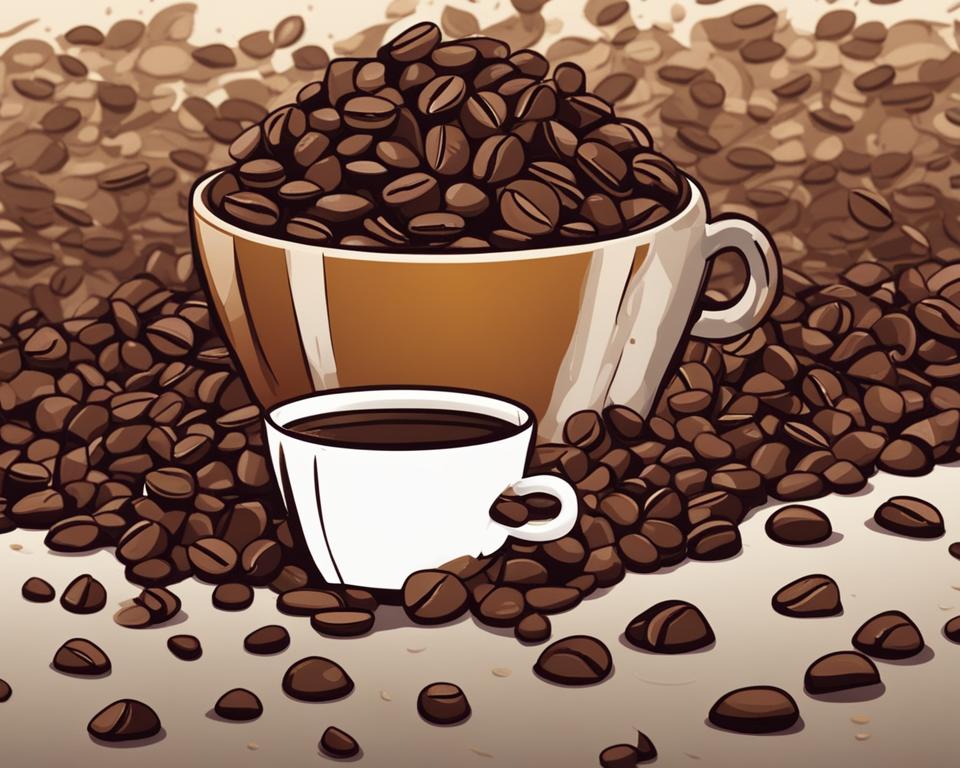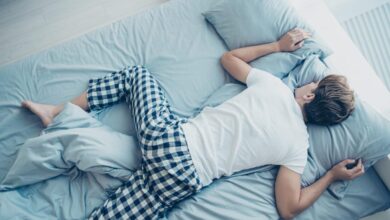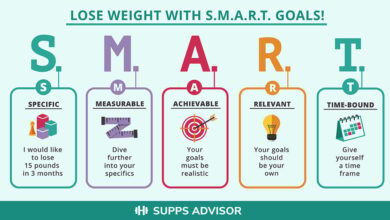
So You Want to Stop Drinking Caffeine?
So you want to stop drinking caffeine? It’s a common desire, especially when you realize how much it’s impacting your sleep, energy levels, or overall well-being. But breaking a caffeine habit can be tough, especially if you’ve been relying on it for years.
You might experience withdrawal symptoms like headaches, fatigue, and irritability. The good news is that it’s possible to break free from caffeine dependence and enjoy a healthier, more balanced life.
This guide will explore the reasons why you might want to cut back on caffeine, the potential health risks associated with excessive consumption, and strategies for reducing your intake gradually and safely. We’ll also discuss the benefits of a caffeine-free lifestyle, and how to address underlying issues that might be contributing to your caffeine dependence.
Understanding Caffeine Dependence

Caffeine is a stimulant that can have a variety of effects on the body and brain. While moderate consumption is generally considered safe for most adults, excessive caffeine intake can lead to dependence and withdrawal symptoms. This dependence can significantly impact daily life, affecting sleep, mood, and overall well-being.
Effects of Caffeine on the Body and Brain
Caffeine works by blocking adenosine, a neurotransmitter that promotes sleepiness and relaxation. This blockage leads to an increase in alertness, focus, and energy levels. Caffeine also stimulates the release of dopamine, a neurotransmitter associated with pleasure and reward, which contributes to its addictive properties.
Signs and Symptoms of Caffeine Withdrawal, So you want to stop drinking caffeine
When caffeine consumption is abruptly reduced or stopped, the body can experience withdrawal symptoms. These symptoms typically begin within 12-24 hours of the last caffeine intake and can last for several days. Common symptoms include:
- Headache
- Fatigue
- Drowsiness
- Irritability
- Difficulty concentrating
- Depressed mood
- Muscle aches
- Nausea
- Vomiting
Reasons for Caffeine Dependence
Several factors contribute to caffeine dependence:
- Genetics:Some individuals may be genetically predisposed to caffeine dependence due to variations in genes related to caffeine metabolism.
- Regular Consumption:Consistent and high caffeine intake over time can lead to dependence, as the body becomes accustomed to its presence and experiences withdrawal symptoms when it is absent.
- Stress and Anxiety:Caffeine can provide a temporary boost in mood and energy, which can be particularly appealing to individuals experiencing stress or anxiety. This can lead to reliance on caffeine for managing these emotions.
- Social Norms:In many cultures, caffeine consumption is normalized and widely accepted. This can contribute to individuals developing a dependence without realizing the extent of their intake.
Impact of Caffeine Dependence on Daily Life
Caffeine dependence can negatively impact various aspects of daily life:
- Sleep Disturbances:Caffeine can interfere with sleep patterns, leading to insomnia, difficulty falling asleep, and poor sleep quality. This can have cascading effects on energy levels, mood, and cognitive function during the day.
- Mood Swings:Caffeine withdrawal can trigger irritability, anxiety, and even depression. This can affect relationships, work performance, and overall well-being.
- Physical Health Issues:Excessive caffeine consumption can contribute to various health problems, including heart palpitations, high blood pressure, and digestive issues. These issues can further exacerbate the negative impacts of caffeine dependence.
Reasons to Reduce or Eliminate Caffeine
While caffeine can provide a temporary boost in energy and focus, excessive consumption can have negative consequences for your health and well-being. Understanding the potential risks associated with caffeine can help you make informed decisions about your intake.
Health Risks Associated with Excessive Caffeine Consumption
Excessive caffeine consumption can lead to various health problems, ranging from mild discomfort to serious complications. It’s crucial to be aware of these risks to make informed choices about your caffeine intake.
- Increased Anxiety and Restlessness:Caffeine is a stimulant that can trigger anxiety and restlessness in some individuals. This is because caffeine can increase the production of adrenaline, a hormone that puts the body into “fight or flight” mode. If you are prone to anxiety, limiting your caffeine intake can help manage your symptoms.
Giving up caffeine can be tough, especially when you’re used to that morning pick-me-up. But remember, it’s often the sugar in your coffee or tea that’s really fueling your cravings. If you’re finding it hard to break free from the sugar cycle, check out this great article from Udento: ask the dietitian how can you beat a sugar addiction.
Understanding how to manage your sugar intake can be a big step towards conquering your caffeine dependence too!
- Sleep Disruptions:Caffeine can interfere with sleep by blocking adenosine, a neurotransmitter that promotes sleepiness. Consuming caffeine close to bedtime can make it difficult to fall asleep and stay asleep, leading to sleep deprivation and its associated health problems.
- Increased Heart Rate and Blood Pressure:Caffeine can temporarily increase your heart rate and blood pressure. While this effect is usually mild and temporary, it can be problematic for individuals with existing cardiovascular conditions.
- Dehydration:Caffeine is a diuretic, meaning it increases urine production. This can lead to dehydration, especially if you don’t drink enough fluids. Dehydration can cause headaches, fatigue, and other unpleasant symptoms.
- Digestive Issues:Caffeine can irritate the stomach lining and contribute to heartburn, acid reflux, and other digestive problems. It can also stimulate bowel movements, potentially leading to diarrhea.
- Dependence and Withdrawal Symptoms:Regular caffeine consumption can lead to dependence, characterized by withdrawal symptoms when you reduce or stop consuming caffeine. These symptoms can include headaches, fatigue, irritability, and difficulty concentrating.
Caffeine’s Impact on Sleep Patterns
Caffeine’s effects on sleep are well-documented. It can interfere with the body’s natural sleep-wake cycle, making it difficult to fall asleep and stay asleep.
- Reduced Sleep Quality:Caffeine can disrupt the stages of sleep, particularly deep sleep, which is crucial for physical and mental restoration. This can lead to feeling tired and groggy even after a full night’s sleep.
- Delayed Sleep Onset:Consuming caffeine close to bedtime can delay sleep onset, meaning it takes longer to fall asleep. This can significantly impact the amount of sleep you get and can contribute to daytime fatigue.
- Increased Sleep Fragmentation:Caffeine can lead to more frequent awakenings during the night, disrupting the continuity of sleep. This can result in feeling unrested and having difficulty concentrating throughout the day.
Caffeine and Anxiety and Restlessness
Caffeine can trigger anxiety and restlessness in some individuals, particularly those who are already prone to these conditions.
- Increased Adrenaline Production:Caffeine stimulates the release of adrenaline, a hormone that triggers the “fight or flight” response. This can lead to feelings of anxiety, nervousness, and restlessness.
- Increased Heart Rate and Blood Pressure:Caffeine’s effects on the cardiovascular system can also contribute to anxiety and restlessness. The increased heart rate and blood pressure can cause feelings of unease and agitation.
- Aggravation of Existing Anxiety Disorders:Individuals with anxiety disorders may find that caffeine worsens their symptoms. Caffeine can exacerbate feelings of worry, fear, and panic.
Caffeine’s Impact on Other Lifestyle Factors
Caffeine can affect various aspects of your lifestyle beyond just your health.
- Impact on Mood:While caffeine can provide a temporary boost in mood, it can also lead to mood swings and irritability, especially when withdrawal symptoms occur.
- Influence on Focus and Concentration:Caffeine can enhance focus and concentration in the short term, but its effects can diminish over time. Moreover, excessive caffeine consumption can lead to jitters and difficulty concentrating.
- Social Interactions:Caffeine can affect social interactions by making individuals more jittery, talkative, or even irritable. It can also lead to withdrawal symptoms that can impact mood and behavior.
Strategies for Reducing Caffeine Intake
Cutting back on caffeine can be a challenge, especially if you’re used to relying on it for energy or focus. But with a gradual approach and a few strategies, you can successfully reduce your caffeine intake without feeling overwhelmed.
Giving up caffeine can be tough, especially when you’re feeling tired and sluggish. But remember, it’s not just about exercise; it’s also about finding ways to move your body throughout the day. If you’re struggling to find time for a dedicated workout, check out this article on what to do if you don’t have time to exercise.
You might be surprised at how many small changes can make a big difference! And remember, even a little movement can help you feel more energized and less reliant on caffeine.
A Gradual Caffeine Reduction Plan
A gradual reduction plan is key to minimizing withdrawal symptoms and increasing your chances of success. Instead of going cold turkey, consider slowly decreasing your caffeine intake over time.
Giving up caffeine can be tough, especially when you’re trying to power through a workout. But it’s important to remember that your body needs time to adjust. Instead of relying on caffeine’s artificial boost, try focusing on your mental game.
Check out these mental tricks to get through tough workouts and you’ll be surprised at how much your body can achieve without the caffeine crutch. Once you’ve conquered those mental hurdles, you’ll find that your body’s natural energy is more than enough to power you through your workouts.
- Track Your Caffeine Intake:Begin by logging your daily caffeine consumption for a week. This will help you identify your usual intake and create a reduction plan.
- Reduce by 25%:Once you have a clear picture of your intake, aim to reduce your caffeine consumption by 25% each week. For example, if you consume 400mg of caffeine daily, reduce it to 300mg in the first week.
- Choose a Timeframe:Set a realistic timeframe for your reduction. Some people may find it helpful to reduce their intake over a few weeks, while others may need a longer period.
- Stay Consistent:Stick to your plan as much as possible. Even if you experience some withdrawal symptoms, resist the urge to increase your caffeine intake.
Managing Caffeine Withdrawal Symptoms
Caffeine withdrawal symptoms can vary in severity and duration depending on your individual intake and sensitivity. While they can be uncomfortable, they are usually temporary and manageable.
- Headache:Headaches are a common withdrawal symptom. Try over-the-counter pain relievers, staying hydrated, and applying a cold compress to your forehead.
- Fatigue:You may experience increased fatigue as your body adjusts. Prioritize sleep, eat a balanced diet, and engage in moderate exercise to combat fatigue.
- Irritability:Caffeine withdrawal can cause irritability and mood swings. Practice relaxation techniques like deep breathing, meditation, or yoga to manage stress.
- Difficulty Concentrating:Some people experience difficulty concentrating during withdrawal. Try breaking down tasks into smaller, manageable steps, and take breaks when needed.
Alternative Beverages
There are plenty of delicious and refreshing alternatives to caffeinated drinks. Experiment with different options to find what you enjoy.
- Water:Plain water is the best way to stay hydrated. Add slices of fruit, herbs, or cucumber for flavor.
- Herbal Teas:Explore a variety of herbal teas like chamomile, peppermint, ginger, or hibiscus. These teas offer calming and health benefits.
- Fruit Infused Water:Infuse water with your favorite fruits like berries, citrus, or melon for a natural sweetness and hydration.
- Sparkling Water:Choose plain or flavored sparkling water for a bubbly and refreshing alternative.
- Coconut Water:Coconut water is a natural electrolyte drink that can be a good alternative to sports drinks.
Healthy Habits to Support a Caffeine-Free Lifestyle
Incorporating healthy habits can enhance your overall well-being and make it easier to reduce or eliminate caffeine.
- Prioritize Sleep:Aim for 7-9 hours of quality sleep each night. Adequate sleep can help regulate your energy levels and reduce cravings.
- Eat a Balanced Diet:Fuel your body with nutritious foods that provide sustained energy. Focus on whole grains, fruits, vegetables, and lean protein.
- Regular Exercise:Engage in regular physical activity to boost energy levels and improve mood.
- Stress Management:Find healthy ways to manage stress, such as yoga, meditation, or spending time in nature.
Addressing Underlying Issues
Caffeine dependence isn’t just about the physical effects of the drug. It’s often intertwined with underlying issues like stress, anxiety, and even boredom. Understanding these factors is crucial to breaking free from caffeine reliance.
The Role of Stress and Other Factors
Stress is a powerful trigger for caffeine consumption. When we’re stressed, our bodies release cortisol, a hormone that can lead to fatigue and low energy. Caffeine, with its stimulating effects, provides a temporary boost, masking the underlying stress. This can create a vicious cycle, where stress leads to caffeine dependence, which in turn exacerbates stress.
Other factors that can contribute to caffeine dependence include:
- Sleep deprivation:Lack of sleep can make us crave caffeine to stay alert.
- Boredom or lack of stimulation:Some people use caffeine to combat boredom or lack of engagement in their daily activities.
- Social pressure:In some social settings, caffeine consumption is normalized, making it harder to abstain.
Strategies for Managing Stress and Anxiety Without Caffeine
While caffeine may provide a temporary escape from stress, it’s not a sustainable solution. Here are some effective strategies for managing stress and anxiety without relying on caffeine:
- Exercise:Regular physical activity releases endorphins, which have mood-boosting effects and help reduce stress levels.
- Deep breathing exercises:Techniques like diaphragmatic breathing can calm the nervous system and promote relaxation.
- Mindfulness meditation:This practice involves focusing on the present moment without judgment, helping to reduce stress and anxiety.
- Yoga or Tai Chi:These practices combine physical movement with mindfulness, promoting relaxation and reducing stress.
- Spending time in nature:Connecting with nature has been shown to have calming effects and reduce stress levels.
Benefits of Incorporating Mindfulness and Relaxation Techniques
Mindfulness and relaxation techniques are powerful tools for managing stress and anxiety, and they can also help break free from caffeine dependence. These techniques promote:
- Increased self-awareness:By paying attention to your thoughts and feelings, you can better understand your triggers for caffeine consumption.
- Improved emotional regulation:Mindfulness helps you develop coping mechanisms for dealing with stress and anxiety without relying on caffeine.
- Reduced cravings:By calming your nervous system and reducing stress, mindfulness can help lessen cravings for caffeine.
Healthy Coping Mechanisms for Dealing with Cravings
Cravings are a normal part of the process of reducing caffeine intake. Here are some healthy ways to manage them:
- Distract yourself:Engage in activities you enjoy, such as reading, listening to music, or spending time with loved ones.
- Drink plenty of water:Dehydration can sometimes mimic caffeine withdrawal symptoms, so staying hydrated is essential.
- Practice mindfulness:Focus on your breath and observe the craving without judgment. Remind yourself of the reasons you’re reducing caffeine.
- Seek support:Talk to a friend, family member, or therapist about your struggles and get support from others who understand.
The Benefits of a Caffeine-Free Life: So You Want To Stop Drinking Caffeine

The decision to reduce or eliminate caffeine from your diet can bring about a multitude of positive changes. While the initial transition may be challenging, the long-term benefits for your health, well-being, and overall quality of life are undeniable.
Improved Sleep Quality
Reduced caffeine intake can significantly improve sleep quality. Caffeine is a stimulant that interferes with the production of melatonin, a hormone crucial for regulating sleep cycles. When you consume caffeine, especially close to bedtime, it can disrupt your natural sleep patterns, leading to difficulty falling asleep, lighter sleep, and frequent awakenings.
By eliminating or reducing caffeine consumption, you allow your body to naturally regulate its sleep-wake cycle, leading to more restful and restorative sleep.
Increased Energy Levels and Focus
While caffeine is often associated with increased energy and focus, this effect is often temporary and can lead to a crash later. The initial boost in energy and focus is a result of caffeine blocking adenosine, a neurotransmitter that promotes sleepiness.
However, when the effects of caffeine wear off, adenosine levels surge, leading to fatigue and decreased mental clarity. In the long run, a caffeine-free lifestyle can lead to more sustained energy levels and improved focus. This is because your body is not constantly experiencing the ups and downs of caffeine withdrawal, allowing for a more balanced and consistent energy flow throughout the day.
Personal Anecdotes
I can personally attest to the benefits of eliminating caffeine. After years of relying on coffee to power through my day, I decided to try a caffeine-free lifestyle. Initially, I experienced headaches and fatigue, but these symptoms subsided within a few days.
Once I adjusted, I noticed a remarkable difference in my sleep quality. I was falling asleep easier, sleeping more soundly, and waking up feeling refreshed and energized. I also noticed a significant improvement in my focus and concentration. I was able to work more productively and engage in activities that required sustained mental effort without feeling drained.
The overall impact on my well-being was profound. I felt more balanced, less anxious, and more in control of my energy levels.
Improved Overall Health and Well-being
Beyond sleep and energy, a caffeine-free lifestyle can have a positive impact on overall health and well-being. Caffeine can contribute to anxiety, restlessness, and irritability. It can also lead to digestive issues, such as heartburn, acid reflux, and stomach upset.
By eliminating or reducing caffeine, you can reduce the risk of these negative side effects and improve your overall digestive health. Additionally, caffeine can increase blood pressure and heart rate, which can be problematic for individuals with pre-existing heart conditions.
A caffeine-free lifestyle can help regulate blood pressure and heart rate, reducing the risk of cardiovascular problems.
Seeking Professional Support
While many people can successfully reduce their caffeine intake on their own, seeking professional support can be beneficial for those who struggle with caffeine dependence or have underlying health concerns. A healthcare professional can provide personalized guidance and support throughout the process.
Role of a Healthcare Professional
A healthcare professional, such as a doctor, nurse practitioner, or registered dietitian, can play a crucial role in addressing caffeine dependence. They can:
- Assess your caffeine intake and dependence levels.
- Identify potential health risks associated with your caffeine consumption.
- Develop a personalized plan for reducing or eliminating caffeine.
- Monitor your progress and adjust the plan as needed.
- Address any underlying medical conditions that may be contributing to your caffeine dependence.
Resources and Support Groups
There are numerous resources available for individuals seeking to reduce caffeine intake:
- Online resources:Websites like the National Institute on Drug Abuse (NIDA) and the American Academy of Pediatrics (AAP) offer information on caffeine dependence and withdrawal symptoms.
- Support groups:Online forums and support groups provide a platform for individuals to share experiences, tips, and encouragement.
- Therapists and counselors:Therapists specializing in addiction and behavioral health can provide support and guidance in managing caffeine dependence.
Seeking Professional Guidance for Underlying Conditions
It’s essential to seek professional guidance if you suspect an underlying condition may be contributing to your caffeine dependence. Some conditions that can lead to increased caffeine consumption include:
- Anxiety and depression:Caffeine can temporarily alleviate symptoms, leading to reliance.
- Sleep disorders:Caffeine can interfere with sleep, making it difficult to function without it.
- Headaches:Caffeine can be used to treat headaches, but overuse can lead to rebound headaches.
A healthcare professional can diagnose any underlying conditions and recommend appropriate treatment.
Final Summary
Quitting caffeine can be a challenging but rewarding journey. By understanding the reasons behind your dependence, developing a gradual reduction plan, and seeking support when needed, you can successfully break free from caffeine’s hold and experience the many benefits of a caffeine-free life.
Remember, it’s about making sustainable changes that improve your overall health and well-being. So, take your time, be patient with yourself, and celebrate each step along the way.






